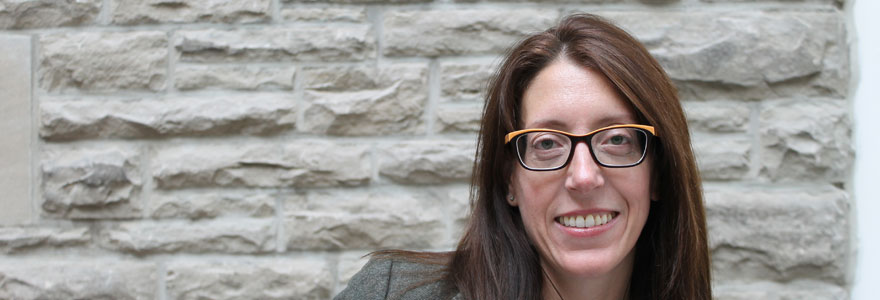News and Updates
Contact
Faculty of Social Science
Social Science Centre
Room 9438
Western University
T. 519-661-2053
F. 519-661-3868
E. social-science@uwo.ca
Porn habits may fuel partner eating disorders
February 25, 2019
Story by Debora Van Brenk, Photo by Rob Rombouts
Body-image expectations tied to a partner’s pornography use might be a contributing factor to some women developing eating disorders, a joint study by Western University and Ohio State University suggests.
It is an important, oft-overlooked factor, which one Western researcher believes needs to be considered as a variable in eating disorders.
The study gauged 409 North American women’s attitudes about eating and body image, along with a number of other personal factors that included their perception of their male partner’s porn use.
“These are all correlational data; we’re not making causal claims,” emphasized Rachel Calogero, associate Professor in the Department of Psychology, the study’s co-author who specializes in sociocultural factors affecting body image and appearance. “We looked at a constellation of environmental variables related to disordered eating. We were interested where these variables overlapped and where independently explained dysfunctional eating behavior.”
Research examining disordered eating among teens and young women has identified different sources of body-image pressure that include media, peers and family. But the influence of male partners has been under-studied, particularly among adult women.
Their paper shows partner’s pornography use as one factor uniquely connected to disordered eating.
Calogero said when a woman is aware her partner is sexually objectifying women through porn use, this could prompt negative outcomes – even if women do not report concern about it.
“There are downstream consequences to this for some women,” she said, and one of those can be a woman’s striving to meet the body standards she perceives her partner values and desires.
“For these women, whether they’re concerned about (their partner’s porn use) or not, it’s making them think about their body shape and body weight. It is influencing what they are doing about it in terms of eating and body control,” she said.
Calogero said the objectification of women, with messages suggesting showing sexy and popular women are thin and toned, “are woven into the everyday landscape. You can drive down the highway and see a billboard to know this is an issue.”
Understanding this variable in disordered eating can lead to better discussions in prevention, intervention and treatment, she said. “It’s part of a conversation-starter and whether it’s identified as a factor, as a stressor, in a relationship that can be talked about.”
The paper, Perceptions of male partner pressure to be thing and pornography use: Associations with eating disorder symptomatology in a community sample of adult women, co-authored by Ohio State psychology professor Tracy Tylka, was published recently in the International Journal of Eating Disorders.

